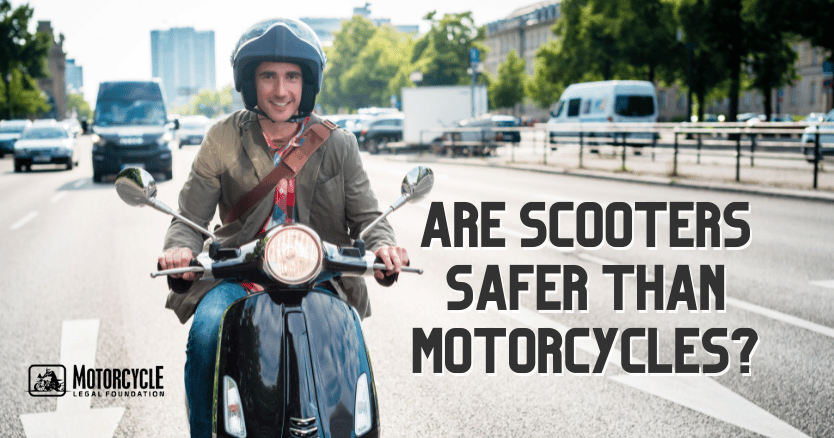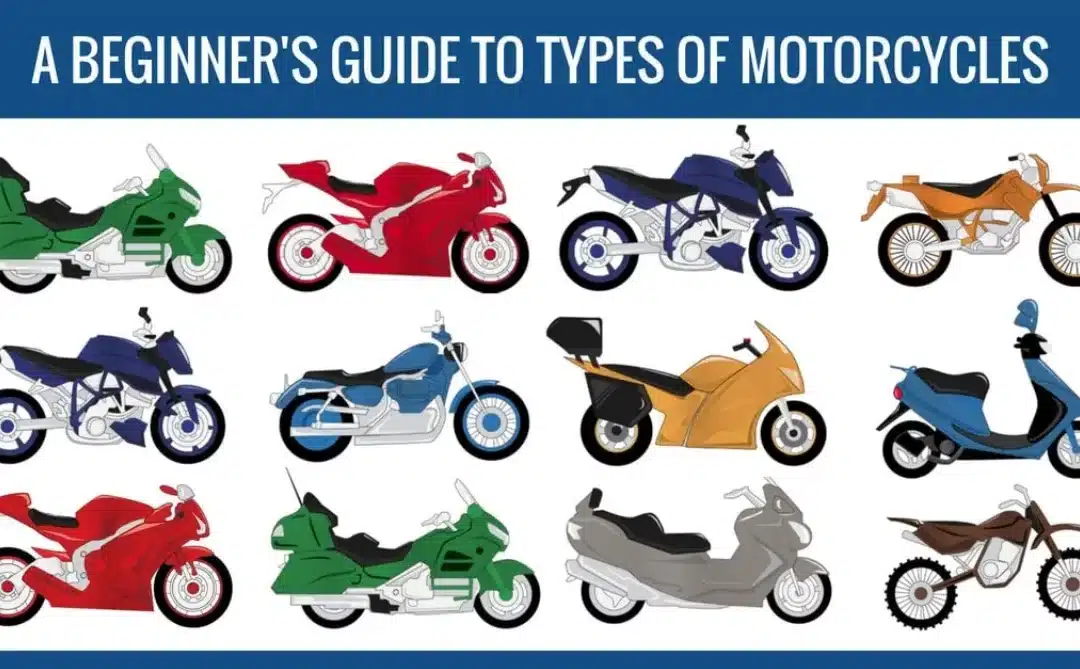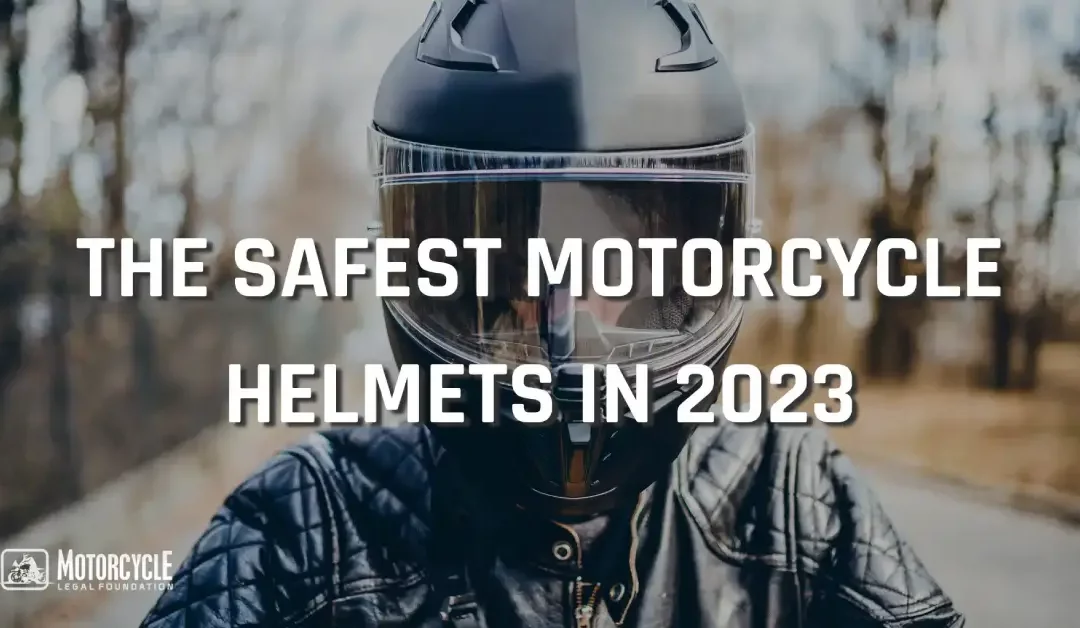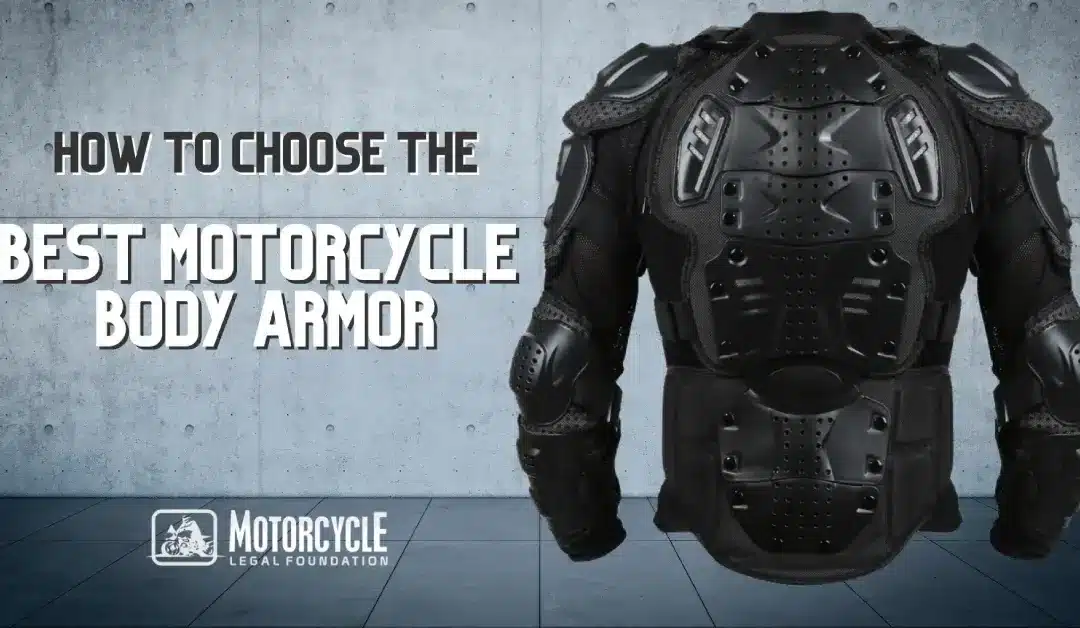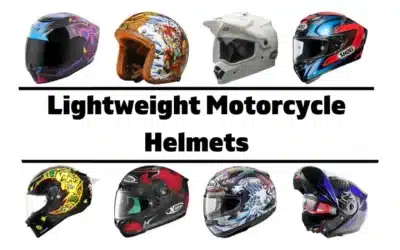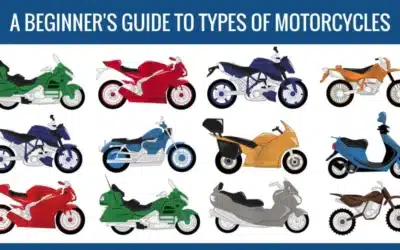Scooter vs. Motorcycle: What’s the Difference?
You may think of a scooter as a small motorcycle, and in some respects, a scooter is comparable to a motorcycle. Both have two wheels, an engine or motor, and are something you sit on to ride.
Below are the defining attributes of a scooter:
- A scooter (also called a motor scooter) has a step-through frame with an area to rest the rider’s feet. Most are shaped like a platform instead of foot pegs, similar to a traditional motorcycle.
- Scooters have engines starting at 50cc and increasing in size up to 850cc. There isn’t an upper limit incorporated into the definition of a scooter, but only a minimum. The maximum currently available is around 850cc.
- Beyond those attributes, there are other subtle differences between motorcycles and scooters, such as smaller wheels, storage space, the transmission used, and traditional front bodywork that some motorcycles don’t have. Given these specs, does that make a scooter safer than a motorcycle?
Are electric Scooters Safe?
With scooters typically being lighter in weight, smaller in size, and having a smaller engine, you may think that a scooter must be safer because it isn’t as heavy or can’t go as fast as a motorcycle. However, scooters are just as dangerous as motorcycles, as they are both two-wheeled and ride through heavy traffic.
Although some scooters cannot mirror the speed of a motorcycle, it doesn’t put you at less risk than a motorcyclist. Speed does not correlate with lower accident risk. Studies show more speeding-related traffic fatalities occurred on 35 mph or lower roads (where the lower-powered scooters can ride) than on over 55mph interstates.
In many states, a two-wheeled vehicle with an engine 50cc and under does not require a motorcycle license or endorsement. However, anything over 50cc does require a motorcycle license. Therefore, many scooter riders may need to gain experience on two wheels and have a reason to take a course to learn how to ride, as only a standard state license is required. They can easily purchase a scooter meeting the 50cc engine criteria and ride through traffic unprepared.
Whether on a motorcycle or a scooter, you will face the same weather and environmental conditions, such as rain, wind, and blinding sunshine. You’ll likely ride the same roads with potholes and navigate the same traffic filled with larger vehicles.
Are motorcycles more dangerous than scooters?
Despite common misconceptions, scooters are just as dangerous as motorcycles.
Smaller Wheels
Scooters typically have smaller wheels than a motorcycle. Therefore, they will be less stable on the road compared to a motorcycle primarily due to the smaller wheels giving less gyroscopic effect (hence the need to be upright). They will also be more susceptible to react to minor hazards in the road, such as potholes, debris, and bumps.
Less Visibility
It isn’t easy to see motorcycles in traffic. A scooter, smaller than a typical motorcycle, will be even more challenging to see, putting you in more danger when you’re surrounded by heavy traffic, as other motorists may not recognize a scooter and rider in their path on the road.
Lack of Gear
Scooters are not widely seen as commuter vehicles, so riders tend to avoid wearing the proper safety gear compared to a typical motorcyclist. Instead, they opt to ride without a helmet, proper jacket, pants, or suitable protective footwear. If you’ve been on vacation to a resort or beach, you may have seen the scooter rentals available. However, they don’t typically ask for a motorcycle license or if you brought proper safety equipment. Therefore, you’re more at risk sans protective gear on a scooter than on a motorcycle with ATGATT.
electric Scooter Safety Tips
While we always want safe riding, there will be inherent risks on a scooter or motorcycle. Below are safety tips on how to ride safely on a scooter:
Ride Defensively
Given the scooter’s size and limited visibility, always ride with a plan in mind for safety. If a car turns in front of you, changes into your lane, or rides too close behind you, always be ready to make a course change to stay safe. You are your best defense against other motorists.
Wear A Helmet
This one should be a no-brainer, and wearing a helmet has been proven to make a difference in keeping your head safe. So if you wear one piece of safety gear, make it the helmet.
Be Visible
Bright colors can make you stand out from a sea of vehicles in traffic, help you stay visible at night with retro-reflective clothing, and generally allow other motorists to see you. Bright and bold can keep you seen and safe.
Ride Within the Limit of Your Scooter’s Ability
Scooters should be considered chiefly city street transportation unless they can reach higher speeds. The smaller scooters may only be able to reach a top speed of 40-50 miles per hour, clearly deeming them incapable of highway or interstate speeds. Be sure to stay safe and ride your scooter appropriately.
Treat it Like a Motorcycle
Treat your scooter like a motorcycle if it is capable of high or low speeds. Apply similar motorcycle safety tips you’ve learned while riding a scooter to keep you safe in traffic.
Regardless of the technical definition differentiating a scooter from a motorcycle, both are two-wheeled transportation that should be ridden cautiously. Riding a scooter exhibits similar risks to riding a motorcycle, but that shouldn’t discourage you.
Want Cheaper Motorcycle Insurance?
Start saving today with a free quote from our trusted insurance partner.

